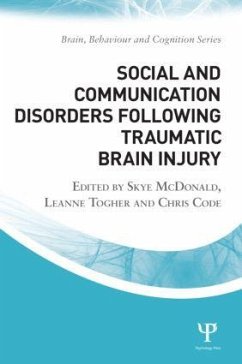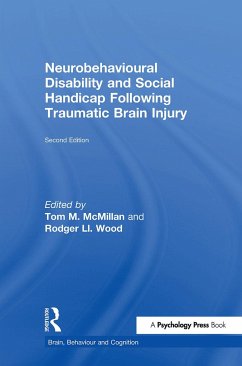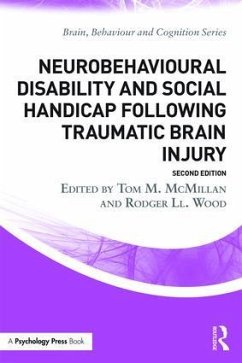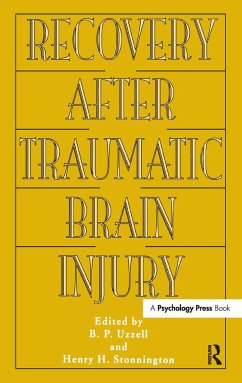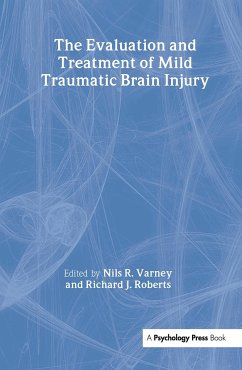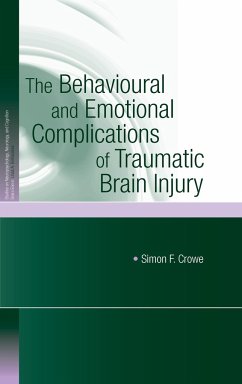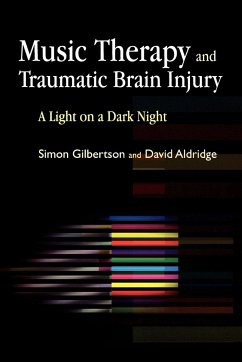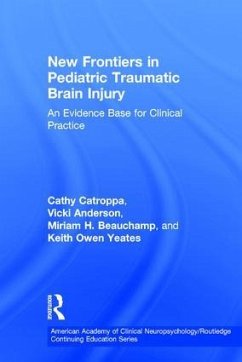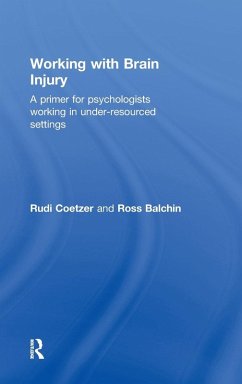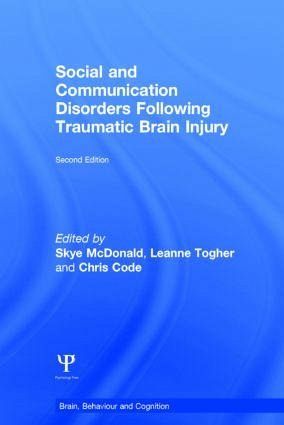
Social and Communication Disorders Following Traumatic Brain Injury
Versandkostenfrei!
Versandfertig in 1-2 Wochen
228,99 €
inkl. MwSt.

PAYBACK Punkte
114 °P sammeln!
Traumatic brain injury (TBI) can seriously disrupt the social and communication skills that are basic requirements for everyday life. It is the loss of these interpersonal skills that can be the most devastating for people with TBI and their families. Although there are many books that focus upon TBI, none focus on communication and communication skills specifically.¿ This book fills this important gap in the literature and provides information ranging from a broad overview of the nature of pathology following TBI and its effects on cognition and behaviour, through to the latest evidence abou...
Traumatic brain injury (TBI) can seriously disrupt the social and communication skills that are basic requirements for everyday life. It is the loss of these interpersonal skills that can be the most devastating for people with TBI and their families. Although there are many books that focus upon TBI, none focus on communication and communication skills specifically.¿ This book fills this important gap in the literature and provides information ranging from a broad overview of the nature of pathology following TBI and its effects on cognition and behaviour, through to the latest evidence about ways to assess and treat social and communication disorders.¿ Much has changed in the field of communication disorders and TBI since the first edition of this book was published in 1999. There have been advances in neuroimaging, providing more accurate understanding of how the brain is damaged in TBI and also insights into its repair. There has been a burgeoning interest in social cognition, and advances in how communication is conceptualized, with a particular focus on the role of how context facilitates or impedes communicative ability. Most importantly, much has changed in the arena of rehabilitation. There is now a growing evidence base of treatments aimed at improving communication problems following TBI, new resources for accessing this information and renewed interest in different kinds of methods for demonstrating treatment effects. Bringing together a range of expert international researchers interested in understanding the nature and treatment of TBI this book covers topics from understanding how the brain damage occurs, how it affects social and communication skills and how these problems might be treated. As such it will be of great interest to clinicians, postgraduate and undergraduate students and researchers in neuropsychology, speech and language pathology.



